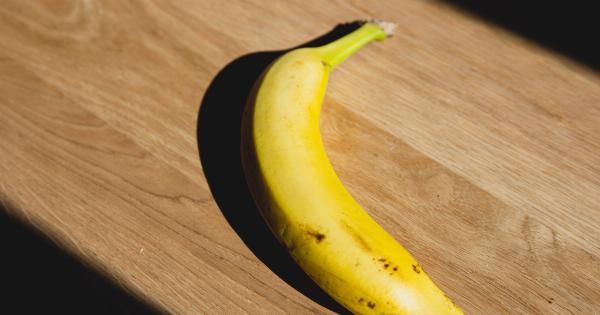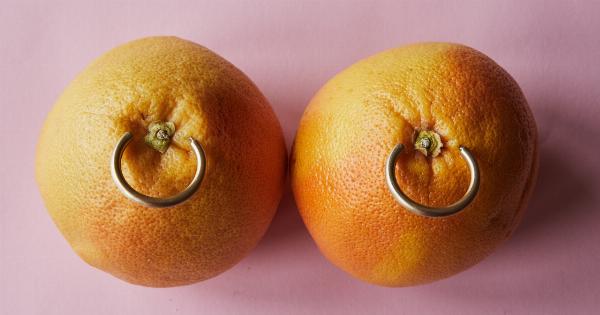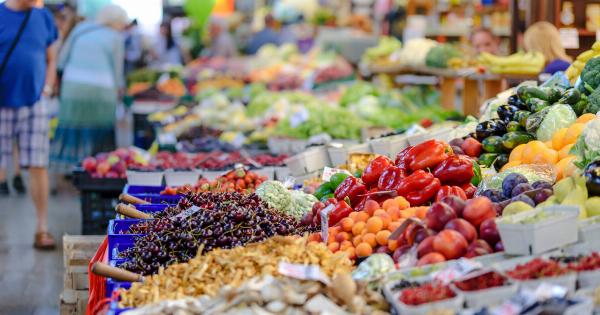Eating a healthy, well-balanced diet that includes plenty of fruits and vegetables is essential for maintaining good health.
However, many fruits and vegetables can be contaminated with pesticide residues, which can be harmful to human health, especially when consumed over a long period of time. While it’s important to thoroughly wash your produce before eating it, selecting fruits and vegetables that are lower in pesticide residues is also a good option.
In this article, we’ll outline 10 fruits and vegetables that have been found to have minimal pesticide residue.
1. Avocado
Avocados are a delicious and nutritious fruit that are high in healthy fats, fiber, and antioxidants. They are also one of the fruits with the least pesticide residue.
In fact, less than 1% of conventionally grown avocados have detectable pesticide residues. This is largely due to the fact that the thick peel of the avocado provides a natural barrier against pests and diseases.
2. Sweet Corn
Sweet corn is another fruit that is relatively low in pesticide residue. According to the Environmental Working Group (EWG), only 1% of sweet corn samples tested positive for pesticide residues in the latest report.
It’s worth noting that this only applies to sweet corn that is sold for human consumption and not for animal feed.
3. Pineapple
Pineapple is a tropical fruit that is popular for its sweet and tangy flavor. It is also a fruit that is typically low in pesticide residues.
According to the EWG, less than 10% of conventionally grown pineapple samples tested positive for pesticide residues. This is possibly due to the fact that pineapples grow on tall stalks with spiny leaves that make them difficult to access for pests.
4. Cabbage
Cabbage is a vegetable that is commonly used in salads, coleslaws, and stir-fry dishes. It’s also one of the vegetables with the lowest pesticide residue. According to the EWG, only 1% of cabbage samples tested positive for pesticide residues.
This is likely because cabbage is a hardy plant that doesn’t require as much pesticide treatment as other vegetables.
5. Sweet Peas (Frozen)
If you’re looking for an easy and convenient vegetable to add to your meals, frozen sweet peas are a great option. They are also a vegetable that is typically low in pesticide residue.
According to the EWG, less than 5% of frozen sweet pea samples tested positive for pesticide residues. This is likely because many frozen vegetables are blanched before they are packaged, which can help remove any pesticide residues.
6. Onions
Onions are a versatile vegetable that can be used in a variety of recipes, from soups and stews to sandwiches and salads. They are also a vegetable that is typically low in pesticide residue.
According to the EWG, only 1% of onion samples tested positive for pesticide residues. This is likely because onions have a strong odor and taste that deters pests and reduces the need for pesticides.
7. Papaya
Papaya is a tropical fruit that is rich in vitamins and antioxidants. It is also a fruit that is typically low in pesticide residue. According to the EWG, less than 10% of conventionally grown papaya samples tested positive for pesticide residues.
This is possibly due to the fact that papaya trees grow tall and have a dense canopy, which makes them difficult to access for pests.
8. Asparagus
Asparagus is a vegetable that is beloved for its delicate flavor and numerous health benefits. It’s also a vegetable that is typically low in pesticide residue.
According to the EWG, less than 2% of asparagus samples tested positive for pesticide residues. It’s possible that asparagus is less susceptible to pests and diseases due to its high fiber content and low sugar content.
9. Mango
Mango is a sweet and juicy tropical fruit that is popular around the world. It is also a fruit that is typically low in pesticide residue. According to the EWG, less than 10% of conventionally grown mango samples tested positive for pesticide residues.
This is likely because mango trees grow tall and have a dense canopy, which makes them difficult to access for pests.
10. Eggplant
Eggplant is a versatile vegetable that is used in a variety of cuisines, from Italian and Greek to Indian and Middle Eastern. It’s also a vegetable that is typically low in pesticide residue.
According to the EWG, less than 5% of eggplant samples tested positive for pesticide residues. This is likely because eggplant plants have a natural resistance to pests and diseases.
Conclusion
Eating plenty of fruits and vegetables is important for maintaining good health, but it’s also important to choose produce that has minimal pesticide residue.
The 10 fruits and vegetables listed above have been found to have the lowest pesticide residue, making them a healthier option for you and your family. When shopping for produce, be sure to look for organic options or choose fruits and vegetables that are less susceptible to pests and diseases.































